Visiting Scholars
- Current
- Past
-
-
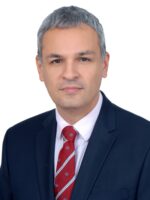
Dr Emmanuel Karagiannis
Dr Emmanuel Karagiannis is a Reader in International Security at King’s College London’s Department of Defence Studies. He received a PhD in Theology and Religious Studies (Islamic Studies) from King’s College London and a PhD in post-Soviet Politics from the University of Hull. He also obtained an MA in International Security Studies from the University of Reading and a BA in European Studies from London South Bank University. During 2005-2011, he worked as an Investigator at the University of Maryland’s National Consortium for the Study of Terrorism and Responses to Terrorism. He also held research positions in Oxford University (2019), the US Military Academy at West Point (2016-2017), London School of Economics (2016-2017), Princeton University (2010), Yale University (2008), Columbia University (2008), and the University of Pennsylvania (2005-2006). His new book Why Islamists Go Green: Politics, Religion and the Environment has just been published by Edinburgh University Press. Also, he is the author of The New Political Islam: Human Rights, Democracy and Justice (Philadelphia: University of Pennsylvania Press, 2018) and Political Islam in Central Asia: The Challenge of Hizb ut-Tahrir (London: Routledge, 2010). He has conducted fieldwork in Ukraine, Azerbaijan, Uzbekistan, Tajikistan, Kazakhstan, Lebanon, and Qatar. During his stay at the Centre, he will conduct research on different manifestations of Islamic and Muslim environmentalism in the Muslim world.
-
-
-
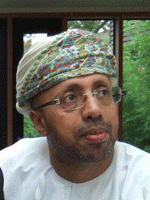
Dr Abdullah Baabood
Dr Abdullah Baabood’s research interests focus on the states of the Gulf Cooperation Council (GCC), primarily their economic, social and political development and their external relations. He has published widely on these topics. Abdullah is a graduate in Business and Economics and holds a master degree in Business Administration (MBA), a master in International Relations (MA), and a PhD from the University of Cambridge. He is also a member of several academic and professional bodies.
-
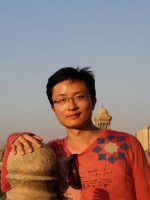
Dr Chaoqun Lian
Dr Chaoqun Lian is an assistant professor in Arabic Studies at Peking University, China. He received a BA and a MA in Arabic Studies from Peking University and completed his PhD in Middle Eastern Studies at University of Cambridge. His research focuses on language symbolism in the social world as is revealed in Arabic language planning and language policy (LPLP) and Arabic lexicography from the nineteenth century onwards. He is currently working on a book project that examines the phenomenon of Arabic language academies in the context of Arab nationalism(s) and peripherality of the Arabs in the modern world-system. Chaoqun is also planning to study metaphor and language ideology in the discourse of Arabic LPLP and to compare Arabic and Chinese LPLPs in relation to the notion of ‘Oriental bond’. He contributes to the Chinese and Arabic press regularly on political and cultural themes.
-
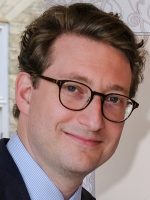
Mr Davidson MacLaren
Davidson MacLaren is a cultural heritage management adviser and art and cultural historian specializing in Islamic books and manuscripts and the olfactory cultures of the Islamic world. He was the executive director of The Islamic Manuscript Association, assistant head of the Thesaurus Islamicus Foundation, and director emeritus of the Thesaurus Islamicus Foundation and Dar al-Kutub (National Library of Egypt) Manuscript Project. He was a visiting scholar at the University of Cambridge’s HRH Prince Alwaleed bin Talal Centre of Islamic Studies and its predecessor, the Centre of Middle Eastern and Islamic Studies, from 2005 to 2019. His research interests include manuscript studies; book history; craft studies; art technological sources, especially Ottoman artists’ manuals; the Islamic arts of the book, especially calligraphy; Islamic studies, especially Sufism; material religion; sensory studies, especially smell; incense and perfumery; and ethno- and economic botany.
-
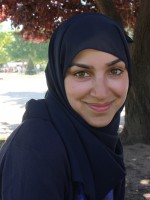
Dr Hawraa Al-Hassan
Dr Hawraa Al-Hassan is an associate fellow of the Higher Education Academy, having taught Arabic and modern history of the Middle East at the University of Cambridge. Hawraa completed her PhD in Middle Eastern Studies at the University of Cambridge and gained an MA in Comparative Literature at University College London. She is interested in the cultural history of the Arab world in so far as it relates to totalitarianism, propaganda and nationalism. Hawraa’s research focuses on interdisciplinary approaches to the Arab novel as a conduit of group identities. Her current project explores Iraqi Ba’thist involvement in the production of literary and media discourses on gender and nation, whilst considering the potential of resistive ‘counter-public’ spaces, be they Islamic or secular.
Her book – Women, Writing and the Iraqi Ba’athist State – is published by Edinburgh University press. -

Dr Khaled Hroub
Dr Khaled Hroub’s areas of research include contemporary history and politics of the Middle East with a focus on Islamism and its political manifestations; the socio-political and cultural impact of the ‘new’ media in the Arab world; the role of public intellectual; and the Arab novel. He has published widely on Hamas and political Islam and the Arab renaissance project.
-
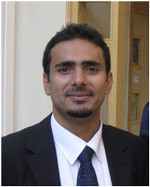
Dr Khalid Almezaini
Dr Khalid Almezaini was an assistant professor at Qatar University where he teaches International Relations of the Gulf states. Before joining Qatar, Almezaini was a research fellow at London School of Economics and Political Science, and taught Middle East Politics at the universities of Cambridge, Exeter and Edinburgh. He completed his PhD from the University of Exeter in 2009. Khalid’s research interest range from International Relations of the Middle East States to foreign aid and foreign policies of the Gulf states; he is also interested the political economy and security of the Gulf States.
-
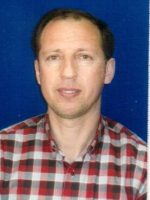
Dr Mohammad Hanini
Dr Hanini was investigating the reduced deposit share of the Islamic Banks in Palestine – Causes and Solutions. His work sought to understand why the Islamic Finance model did not become the predominant financial model in Palestine despite the obvious attractions of its moral basis and to map possible paths to make it more successful in the future. He took his degree and MA at Al-Najah National University before completing his PhD in Islamic Banking and Financial Markets from the Arab Academy of Banking and Financial Sciences in Jordan. He has taught at Birzeit university since 2009 and from 2013-16 was the Chairperson of the Department of Public Administration at Birzeit University.
-
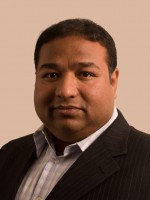
Mr Dilwar Hussain
Dilwar Hussain has research interests in social policy, Muslim identity and Islamic reform in the modern world. He is founding Chair of ‘New Horizons in British Islam’ a charity that works for reform and contextualisation of Muslim thought and practice, Director of Pacata Consulting, a Senior Programme Advisor to the Institute for Strategic Dialogue and a Research Fellow at the Lokahi Foundation. Dilwar is a Trustee of the Three Faiths Forum (3FF), the Islamic Society of Britain, the Holocaust Memorial Day Trust and Maslaha. He was Head of the Policy Research Centre, at the Islamic Foundation (2007-2013), a Commissioner at the Commission for Racial Equality (CRE) (2006-2007) and served on the Archbishop of Canterbury’s Commission on Urban Life and Faith (2005 – 2006).
-
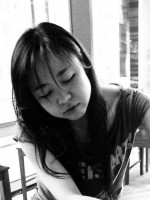
Dr Saeko Yazaki
Dr Saeko Yazaki was the Outreach and Project Manager of the Centre of Islamic Studies from 2010 to 2012. Her areas of research include the mysticism and epistemology of religion, the Judaeo-Islamic tradition in al-Andalus, and their continuing relevance to the present. She is also pursuing comparative study of monotheistic and non-monotheistic faiths. In her forthcoming monograph, Islamic Mysticism and Abu Talib al-Makki: The Role of the Heart (Routledge, 2012), she addresses the complexity of the Sufi-Hanbali interaction on one hand, and the Muslim-Jewish nexus on the other, through an exploration of the religious image of the heart in the works of the tenth-century Sufi preacher, al-Makki, and specifically his book on ethics, Qut al-qulub (‘The Nourishment of Hearts’). Currently she is carrying out research on deep connections between Jewish and Muslim spirituality. Saeko has now taken up the post of Lord Kelvin Adam Smith Fellow at Theology and Religious Studies, University of Glasgow.
-
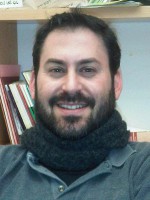
Dr Yonatan Mendel
Dr Yonatan Mendel completed his doctoral studies in the Department of Middle Eastern Studies at Cambridge University. His thesis examined the history of Arabic studies in Jewish schools in Palestine/Israel from 1935 to 1985, and focused on the politicisation and securitisation of the language. Yonatan’s research deals with topics such as language policy and war, security considerations and language planning, and the interrelationship between political conflict and foreign language studies in Israel/Palestine. His book, The Creation of Israeli-Arabic: The Political History and Securitisation of Arabic Language Studies in Israeli-Jewish Society, will be published in 2014 (Palgrave Macmillan). Yonatan is a regular contributor to the London Review of Books and has published widely on Israeli society and the Israeli-Palestinian conflict in English, Arabic and Hebrew.
-
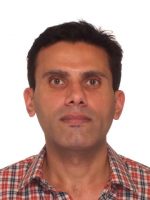
Dr Hussam Eldin Mohamed Raafat Ahmed
Dr Hussam Ahmed works under the supervision of Professor Khaled Fahmy on a research project entitled “Ruptures and Continuities: Cultural and Educational Institutions between Parliamentary (1924-1952) and Nasserite (1952-1970) Egypt.” In this project, he examines the evolution of Egyptian cultural and educational institutions under Gamal Abdel Nasser’s authoritarian rule. His research is designed to understand Nasser’s official cultural policies and assess their enduring impact on institutions in Egypt and other Arab countries, which found a model in Egyptian institutions.
-
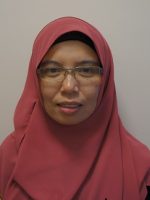
Dr Nor Haslina Ja’far
Dr Nor Haslina Ja’far’s research project title is ‘Approaches to the Islamic Principles of Street Design and Multi-Cultural Characters in Malaysia: Traditional Streets as Reference’. This study addresses the concept of street design in Malaysia that is based on the Islamic design principle to satisfy the Malaysian Muslim needs. The aim of Nor Haslina’s research is to establish a multicultural street design that shapes the characters of street pattern based on Islamic design principles, which uses the multicultural aspect of the traditional streets as a model or reference.
-
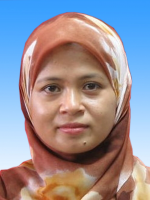
Dr Ruhaini Muda
Dr Ruhaini Muda is a research fellow at Accounting Research Institute, Malaysia. She is presently working on research which focuses on the development of a reporting framework for value-based Islamic financial institutions. The study addresses a growing call for delivering initiatives which truly impact stakeholders and the wider community. This is only possible if these initiatives are measured and reported in ways that support entrepreneurship, social well-being, a sustainable environment and economic growth. Towards this end, Islamic financial institutions need to measure and report the impact they make through effective and enhanced collaboration with strategic partners and stakeholders. Ruhaini’s primary research interest is in the development of a sustainable social sector eco-system, with particular focus on the contributions of Islamic social capital such as zakah, waqf and sadaqa. She also works in the related area of social impact assessment and reporting.
-
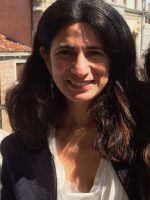
Dr Ruba Salih
Ruba Salih is a Reader at the Department of Anthropology and Sociology of the School of Oriental and African Studies (SOAS) University of London. Her research interests and writing cover, the Palestine question and refugees, migration, diaspora cultures, Islam and gender, the political anthropology of borders and states.
She is the author of Gender in Transnationalism. Home, Longing and belonging among Moroccan Migrant Women(Routledge) and of Musulmane Rivelate. Donne Islam Modernita’ (Carrocci) winner of the Premio Pozzale 2011). Currently she is completing a manuscript on Waiting and the politics of exile among Palestinian refugees(Cambridge University Press).
Among her recent publications a co-edited (with Sophie Richter-Devroe) special issue of the journal South Atlantic Quarterly 2018 titled ‘Palestine and Self-determination beyond National Frames: Emerging Politics, Cultures, and Claims’ and “Bodies That Walk, Bodies That Talk, Bodies That Love: Palestinian Women Refugees, Affectivity, and the Politics of the Ordinary” in Antipode, 49: 742–760. She has also co-edited with S. Richter-Devroe a special issue of the Arab Studies Journal (2014) on “Cultures of Resistance in Palestine and Beyond. On the Politics of Arts, Aesthetic and affect”.
-
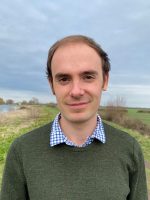
Dr William Ryle-Hodges
Dr William Ryle-Hodges conducts interdisciplinary research on the intellectual history of the modern Middle East. He currently works on Arab journalism in late 19th century Egypt, particularly looking at ideas of civility, society and public opinion and the way these ideas shaped and linked together Islamic legal and ethical traditions, constitutionalism and the formation of the modern state. This work centres on a close study of the journalism of the renowned religious scholar and reformer, Muḥammad ʿAbduh (1849-1905), which sheds light on the local journalistic and bureaucratic dimensions of ʿAbduh’s reforms: their place in the intellectual and social change in Egypt that ʿAbduh was negotiating in the overlapping contexts of Ottoman modernizing reforms (the tanẓīmāt), the ʿUrābī Revolution of 1881-1882, and the Arabic literary renaissance of the time, known as the Nahḍa. William also works on the historical and contemporary legacy of Nahḍa ideas from this period and their interaction with the emergence of Islamism, particularly exploring this interaction in the life of the charismatic Sufi and Shaykh al-Azhar, ʿAbd al-Ḥalīm Maḥmūd (1910-1978). He has several publications in these fields and supervises undergraduate modules in Islamic and Middle Eastern Studies at the University of Cambridge.
-

Dr Monika Lindbekk
Dr Monika Lindbekk works as a researcher at the University of Bergen as part of the CanCode-project. The project focuses on processes of canonization and codification of Islamic law: How does Islamic law Change? Canonization and Codification of Islamic Legal Texts. https://www.uib.no/en/cancode. Her research at Cambridge investigates Egyptian courts’ adjudication of Muslim marriage and divorce law before and after the 2011 uprising. The study aims to contribute to the growing scholarly literature on the implementation of shari’a-based family codes by describing and analyzing the gender implications of religiously inspired judicial activism. A further aim is to shed light on the intersection between law and religion in this field and how legal reasoning is shaped by a modern, positivistic conception of law. At the core of this study was an analysis of judicial practise at five Cairenese family courts. To investigate how Cairenese family courts integrate various social classes into what they regard as the essence of Islam, she draws material from five family courts in different neighbourhoods in Cairo from 2011-2015.
Recent Publications:
Lindbekk, Monika. 2023. Reflections on Law, Religion, and Technology: Legal mobilization in the Area of Egyptian Paternity Law. In Combining the Legal and the Social in Sociology of Law: A Homage to Reza Banakar. Schultz, U., Hydén, H., Nelken, D. & Cotterell, R. (eds.). Oxford: Hart Publishing, p. 145-158.
Dupret, Baudouin, Adam Belkadi, Monika Lindbekk, Ayang Utriza Yakin. 2023. Paternal Filiation in Muslim-Majority Environments: A Comparative Look at the Interpretive Practice of Positive Islamic Law in Indonesia, Egypt, and Morocco. In: Journal of Law, Religion and State, 1–51.
Lindbekk, Monika and Rania Maktabi. 2023. Gender and judging in the Middle East and Africa. In: Onati Socio – Legal Series. 13, 3, p. 1036–1048.
Lindbekk, Monika and Bassam Bahgat. 2021. Blasphemy and the Cultivation of Religious Sentiments in post-2011 Egypt. In Blasphemies Compared: Transgressive Speech in a Globalised World, edited by Anne Stensvold. London: Routledge.
Lindbekk, Monika. 2021. Conversions. In 2016: How it felt to live in the Arab World five years after the ‘Arab Spring’. Special issue of Journal of Arabic and Islamic Studies 21: 50-55.
Lindbekk, Monika and Teresa Pepe. 2021. Court Trials. In 2016: How it felt to live in the Arab World five years after the ‘Arab Spring’. Special issue of Journal of Arabic and Islamic Studies 21: 57-66.
-

Dr Kassim Alsraiha
Kassim Alsraiha’s research is located at the interface between Islamic studies, contemporary intellectual history and politics of the Middle East. His work engages contemporary issues of citizenship, democratization and reformism in the Arab world, with a particular focus on the Gulf States.
He is also interested the legal history and Arab minority in the Naqab.
Kassim has published widely on the topics of religion and state, minorities, citizenship and leadership.
-
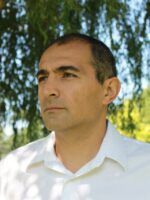
Dr Nader Hashemi
Nader Hashemi is the Director of the Center for Middle East Studies and an Associate Professor of Middle East and Islamic Politics at the Josef Korbel School of International Studies at the University of Denver. He is a Non-Resident Fellow at Democracy for the Arab World Now (DAWN). His research and intellectual interests lie at the intersection of political theory, international relations and comparative politics. Specifically, he has a keen interest in debates on religion and democracy, the politics of authoritarianism, democratic and human rights struggles in non-Western societies, Islam-West relations and US foreign policy. His next book project focuses on the global destabilizing effects of Middle East authoritarianism. It is tentatively titled: “How Authoritarianism is Destabilizing the Middle East *and* Our World.”
-
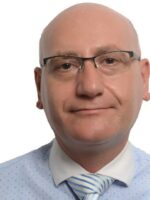
Dr Aadel Shakkour
Dr Aadel Shakkour seeks to examine how humour is reflected as a rhetorical device in the political discourse of the late president of Egypt, Gamal Abdel Nasser. Aadel’s aim is to show how Abdel Nasser relied on humour as an essential rhetorical device to convey his political messages, promote his ideological views, and level scathing criticism against his political opponents. The study is based on the key premise through humour Abdel Nasser was able to engage in emotional manipulation of his audience, inspiring them to sympathize with his political views. This study will also rely on the use of critical discourse analysis (CDA) tools.
Dr Shakkour intends to discuss the following questions: how Nasser in his speeches rely on humour as an essential rhetorical device to convey his political messages, promote his ideological views, and level scathing criticism against his political opponents; how Nasser will turn to humour to emotionally arouse and manipulate his audience, thus increasing his popularity and strengthening his support.
The study corpus draws on examples from Abdel Nasser’s speeches in which humour as a rhetorical device is a salient feature. While some of his speeches are extremely long, many consist of no more than a few lines. The study is based on the recorded speeches, gather mainly from online media. Despite the importance of these speeches, they have yet to be collected and concentrated in a comprehensive book.
-

